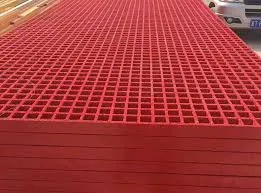
-
 Afrikaans
Afrikaans -
 Albanian
Albanian -
 Amharic
Amharic -
 Arabic
Arabic -
 Armenian
Armenian -
 Azerbaijani
Azerbaijani -
 Basque
Basque -
 Belarusian
Belarusian -
 Bengali
Bengali -
 Bosnian
Bosnian -
 Bulgarian
Bulgarian -
 Catalan
Catalan -
 Cebuano
Cebuano -
 China
China -
 China (Taiwan)
China (Taiwan) -
 Corsican
Corsican -
 Croatian
Croatian -
 Czech
Czech -
 Danish
Danish -
 Dutch
Dutch -
 English
English -
 Esperanto
Esperanto -
 Estonian
Estonian -
 Finnish
Finnish -
 French
French -
 Frisian
Frisian -
 Galician
Galician -
 Georgian
Georgian -
 German
German -
 Greek
Greek -
 Gujarati
Gujarati -
 Haitian Creole
Haitian Creole -
 hausa
hausa -
 hawaiian
hawaiian -
 Hebrew
Hebrew -
 Hindi
Hindi -
 Miao
Miao -
 Hungarian
Hungarian -
 Icelandic
Icelandic -
 igbo
igbo -
 Indonesian
Indonesian -
 irish
irish -
 Italian
Italian -
 Japanese
Japanese -
 Javanese
Javanese -
 Kannada
Kannada -
 kazakh
kazakh -
 Khmer
Khmer -
 Rwandese
Rwandese -
 Korean
Korean -
 Kurdish
Kurdish -
 Kyrgyz
Kyrgyz -
 Lao
Lao -
 Latin
Latin -
 Latvian
Latvian -
 Lithuanian
Lithuanian -
 Luxembourgish
Luxembourgish -
 Macedonian
Macedonian -
 Malgashi
Malgashi -
 Malay
Malay -
 Malayalam
Malayalam -
 Maltese
Maltese -
 Maori
Maori -
 Marathi
Marathi -
 Mongolian
Mongolian -
 Myanmar
Myanmar -
 Nepali
Nepali -
 Norwegian
Norwegian -
 Norwegian
Norwegian -
 Occitan
Occitan -
 Pashto
Pashto -
 Persian
Persian -
 Polish
Polish -
 Portuguese
Portuguese -
 Punjabi
Punjabi -
 Romanian
Romanian -
 Russian
Russian -
 Samoan
Samoan -
 Scottish Gaelic
Scottish Gaelic -
 Serbian
Serbian -
 Sesotho
Sesotho -
 Shona
Shona -
 Sindhi
Sindhi -
 Sinhala
Sinhala -
 Slovak
Slovak -
 Slovenian
Slovenian -
 Somali
Somali -
 Spanish
Spanish -
 Sundanese
Sundanese -
 Swahili
Swahili -
 Swedish
Swedish -
 Tagalog
Tagalog -
 Tajik
Tajik -
 Tamil
Tamil -
 Tatar
Tatar -
 Telugu
Telugu -
 Thai
Thai -
 Turkish
Turkish -
 Turkmen
Turkmen -
 Ukrainian
Ukrainian -
 Urdu
Urdu -
 Uighur
Uighur -
 Uzbek
Uzbek -
 Vietnamese
Vietnamese -
 Welsh
Welsh -
 Bantu
Bantu -
 Yiddish
Yiddish -
 Yoruba
Yoruba -
 Zulu
Zulu
frp composite panels
The Advantages of FRP Composite Panels
Fiber Reinforced Polymer (FRP) composite panels have emerged as a revolutionary material in various industries, ranging from construction and transportation to aerospace and marine applications. These panels, composed of a polymer matrix strengthened by fibers (commonly glass, carbon, or aramid), offer numerous advantages over traditional materials. This article explores the characteristics, benefits, and applications of FRP composite panels.
One of the most notable advantages of FRP composite panels is their exceptional strength-to-weight ratio. Compared to steel and aluminum, these panels are significantly lighter while maintaining a comparable level of strength. This property makes them an ideal choice for applications where weight reduction is crucial, such as in aircraft manufacturing or automotive industries, where saving weight can lead to improved fuel efficiency and overall performance.
The Advantages of FRP Composite Panels
Thermal and electrical insulation are additional advantages of FRP composite panels. The non-conductive nature of these materials makes them ideal for applications where electrical insulation is required, such as in electrical enclosures or equipment housings. Additionally, their thermal insulation properties help in energy conservation by reducing heat transfer, making buildings more energy-efficient and comfortable.
frp composite panels

Moreover, FRP composite panels offer design flexibility. They can be manufactured in various shapes, sizes, and colors, allowing architects and designers the freedom to innovate without compromising structural integrity. This versatility is particularly beneficial in the construction industry, where aesthetic appeal is as crucial as functionality.
The installation process for FRP composite panels is also relatively straightforward due to their lightweight nature. This can lead to significant savings in labor costs and time compared to heavier alternatives, as fewer resources are required for transport and installation. Furthermore, the panels can be prefabricated off-site, allowing for faster construction and reduced on-site labor requirements.
In addition to their practical benefits, FRP composite panels are increasingly being recognized for their sustainability. Many manufacturers produce these panels using recycled fibers and resins, contributing to a reduction in waste and the overall environmental impact of construction practices.
In conclusion, FRP composite panels represent a significant advancement in material technology, providing a range of benefits, including lightweight strength, corrosion resistance, thermal and electrical insulation, design flexibility, and sustainability. As industries continue to seek materials that meet the demands of modern applications while minimizing environmental impact, FRP composite panels are poised to play a crucial role in the future of construction and manufacturing. Their unique properties not only enhance performance and longevity but also support the development of innovative designs, paving the way for a more sustainable and efficient future.









